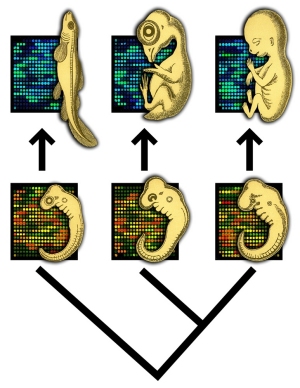Genome Med. 2015;7(1):74. doi: 10.1186/s13073-015-0188-5. eCollection 2015.
BACKGROUND: There is a widespread assumption that risk prediction is the major driver of customer interest in personal genomic testing (PGT). However, some customers may also be motivated by finding out whether their existing diseases have a genetic aetiology. We evaluated the impact of an existing medical diagnosis on customer interest in condition-specific results from PGT.
METHODS: Using a prospective online survey of PGT customers, we measured customer interest prior to receiving PGT results for 11 health conditions, and examined the association between interest and personal medical history of these conditions using logistic regression.
RESULTS: We analyzed data from 1,538 PGT customers, mean age 48.7 years, 61 % women, 90 % White, and 47 % college educated. The proportion of customers who were 'very interested' in condition-specific PGT varied considerably, from 28 % for ulcerative colitis to 68% for heart disease. After adjusting for demographic and personal characteristics including family history, having a diagnosis of the condition itself was significantly associated with interest in genetic testing for risk of that condition, with odds ratios ranging from 2.07 (95 % CI 1.28-3.37) for diabetes to 19.99 (95 % CI 4.57-87.35) for multiple sclerosis.
CONCLUSIONS: PGT customers are particularly interested in genetic markers for their existing medical conditions, suggesting that the value of genetic testing is not only predictive, but also explanatory.
In the age of genomics one can now be genome sequenced for about $1,000 and a few weeks. Maybe we should all be sequenced a birth, it would aid the issue of matching people for transplants, aid in crime prevention, such as rape. But who holds the information and what will the information be used for such as assessing your risk of developing disease in 50 years time and affecting your insurance premium
So is it good to know your genome make up and will it help predict your medical future? In time maybe and for some things like he Huntingdon mutation, which is dominant maybe..but for MS at present one has to say dream on.
So far about 150 gene variants have been found out of 30,000 genes and none of the genetic variants is an absolute requirement. The other 250 or so genes variants to be found all will all have minor influences, just like the other 149 genes found. The most important is cluster is the human leucocyte antigen, notably HLA-DR2, which is common in Northern European Stock In fact if you have 100% of the genes of someone with MS, identical twin studies show that there is a 75% chance you will not get MS. So as a predictive tool is is simply not good enough at present.
Does it help explain your disease? Again it may in the future but for many genes we do not understand what the genetic variants are doing and many of them will mean you have a good immune response to get rid of infections
Next, a problem is having the computational power to work out what it all means as many of the genes will work in networks. I have a genome sequence of a mouse strain. The question is where to start and what to do.
So by all means get yourself genotyped, but it will be some time before it explains your MS.
So by all means get yourself genotyped, but it will be some time before it explains your MS.
